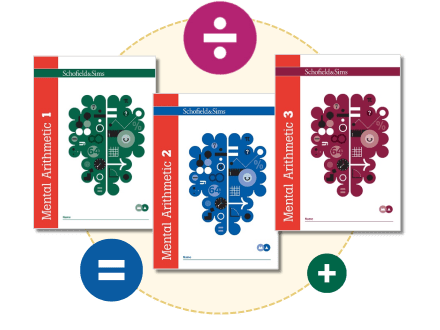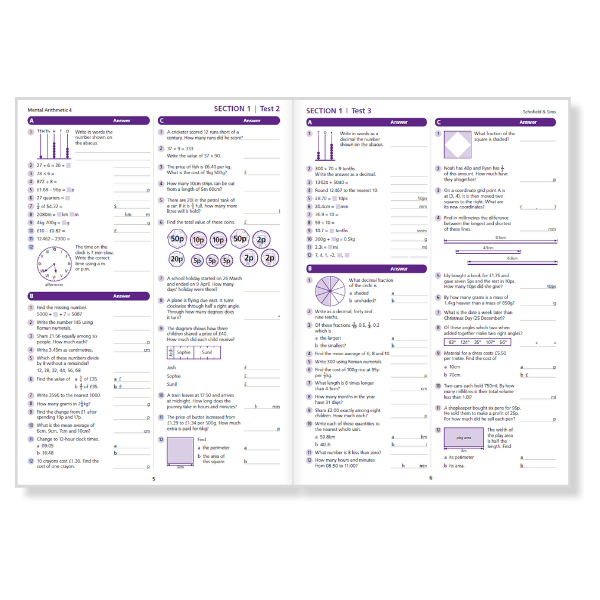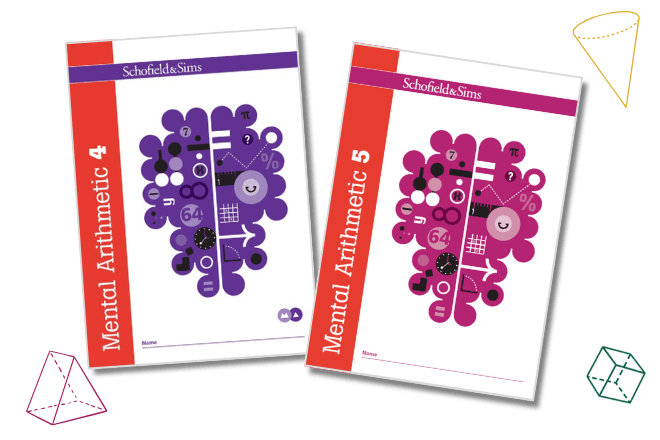

Mental Arithmetic is a unique resource providing varied and frequent practice of core mathematical processes and concepts. A trusted favourite for homework and classroom use, each book contains over 1,500 carefully structured questions, combining numerical calculations, written problems, and one- and two-step challenges to strengthen core skills.

Breadth: The wide range of topics covered means that pupils must apply their full knowledge and skills in answering each question, demonstrating what they know, as well as what they may have forgotten.
Depth: The rich blend of question types in each book not only improves pupils’ vocabulary and mathematical reasoning skills, but also develops their conceptual understanding of number.
Progress: Each test builds on the previous test, revising topics already covered, while at the same time challenging pupils to tackle more complex problems.
The Mental Arithmetic Pupil Books feature thousands of questions across 36 tests per book– one for each week of term. Key topics and number vocabulary are revisited again and again, giving pupils the opportunity to use and apply their maths skills in a wide variety of contexts, while also highlighting areas of weakness.
Throughout the series, additional 10-minute Progress Tests and topic-based Check-up Tests highlight any gaps in understanding, while Language of Maths glossaries help to develop pupils’ knowledge of key mathematical vocabulary.
Tailored to meet the requirements of the National Curriculum for primary mathematics, the books are structured according to ability rather than age, allowing pupils to work at their own pace.

Mental Arithmetic was developed by teachers who recognised that effective practice requires more than repetition. Using principles that follow variation theory and intelligent practice, they designed a unique 'A, B, C' format that encourages children to think mathematically and make connections between different question types.
Part A - Questions where use of language is kept to a minimum.
Part B - Questions based on mathematical vocabulary and symbols.
Part C - Questions featuring one- and two-step word problems.
A range of free downloads are available from the Schofield & Sims website, including:

Trusted by thousands of schools, the series remains a favourite with teachers for building confidence and fluency in maths.
Search and filter through all Schofield and Sims products.
View all products



